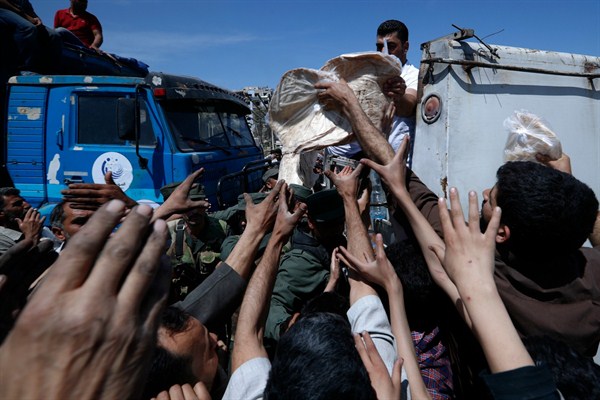Ten years ago, the Sri Lankan military carried out a violent final offensive against the Liberation Tigers of Tamil Eelam, a rebel group with a long history of atrocities. The offensive, which ultimately resulted in the end of the war, involved the brutal killings of thousands of civilians—acts that were documented in real time by journalists and United Nations officials.
Back in New York, however, the U.N.’s leaders failed to muster a meaningful response to mitigate the bloodshed, and Ban Ki-moon, the secretary-general at the time, soon came under heavy criticism. As Richard Gowan writes in this week’s in-depth report, the Sri Lanka debacle “became a touchstone for debates about the body’s moral and political purpose.”
Over the past decade, the U.N. has tried to change how it responds to crisis situations so as to promote human rights and the protection of civilians. For this week’s Report episode of the podcast, Richard Gowan talks with Robbie Corey-Boulet about the successes and failures of that reform effort, and why the U.N. has failed to stop new outbreaks of violence from Syria to Myanmar and beyond.
If you like what you hear on Trend Lines and what you’ve read on WPR, you can sign up for our free newsletter to get our uncompromising analysis delivered straight to your inbox. The newsletter offers a free preview article every day of the week, plus three more complimentary articles in our weekly roundup every Friday. Sign up here. Then subscribe.
Listen:
Download: MP3
Subscribe: iTunes | RSS | Spotify
Relevant Articles on WPR:
A Decade After Failing to Stop Massacres in Sri Lanka, What Has the U.N. Learned?
Trend Lines is produced and edited by Peter Dörrie, a freelance journalist and analyst focusing on security and resource politics in Africa. You can follow him on Twitter at @peterdoerrie.
To send feedback or questions, email us at podcast@worldpoliticsreview.com.

